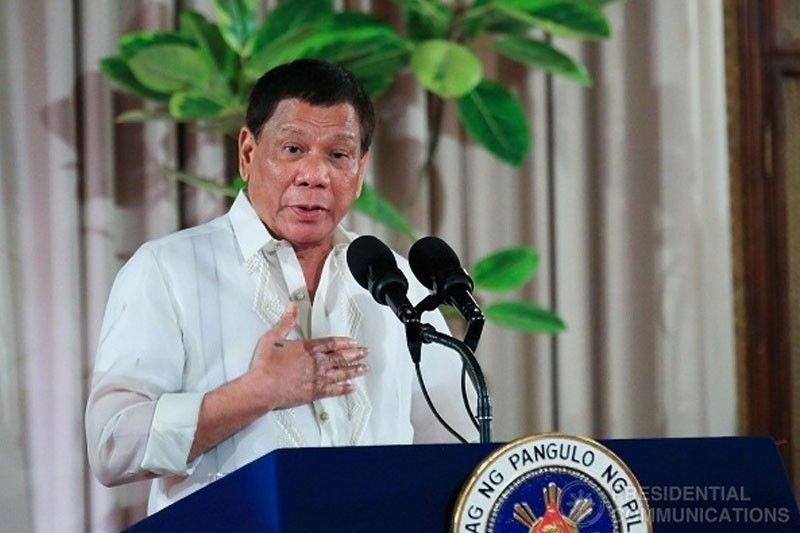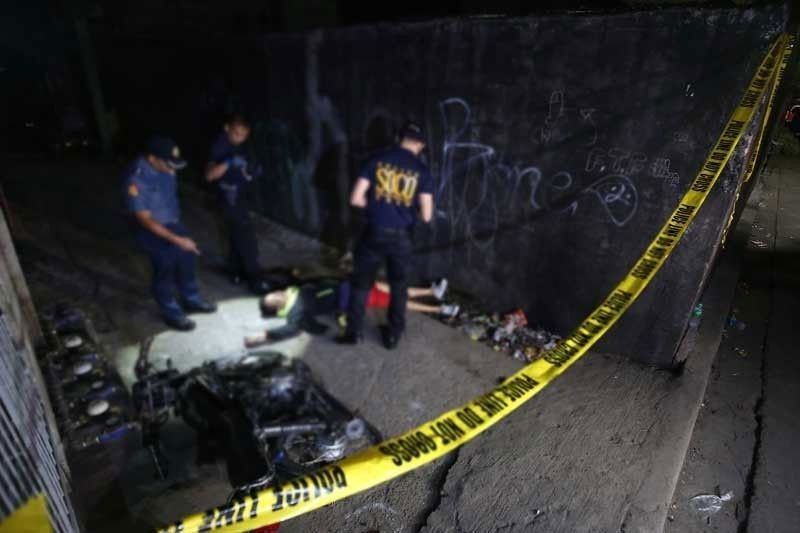Duterte's 'war on drugs': A misguided and failed war
I actually support a strong leader with formidable political will for the Philippines as that is required by many of our challenges.
Although I did not support President Duterte in the 2016 elections, I initially thought that he might be the right person to lead us by taking radical action against poverty, inequality, social injustice and conflict, and yes the problem of illegal drugs. I thought he would reform the economy to make it work for the poor and he would be able to enter into a permanent peace settlement with the communists.
I was wrong about my hopes for Duterte’s presidency and right about my fears. And the war against illegal drugs is the prime example of this failed presidency.
I did not support him because I was already committed to another candidate, who I thought was the best among our choices, but also because of lingering concern about Duterte’s human rights records in Davao.
I was wrong about my hopes for Duterte’s presidency and right about my fears. And the war against illegal drugs is the prime example of this failed presidency.
There is no doubt that illegal drugs was and is a problem in the Philippines. It was also self-evident that previous administrations had failed to address the problem and candidate Duterte was on to something when he prioritized the issue in the campaign.

A serious campaign against illegal drugs directed against drug traffickers while implementing medical and rehabilitation interventions for drug addicts would have had the support of everyone. Legal and judicial reforms were and are essential and should have been a priority – but unfortunately little has been done in this area.
Most unfortunately, central to Duterte’s strategy in the war against illegal drugs, is the idea that human rights must be subordinated to the exigencies of the war. In Duterte’s Philippines, the burden of proof is reversed; it is the suspected drug lord or pusher who must prove innocence; due process is only for the courts and not a responsibility of the executive branch, meaning the prosecution and law enforcers.
As documented by the Office of the High Commissioner on Human Rights (OHCHR), based on police data from 42,286 police anti-illegal drugs operations conducted from July 1, 2016 until November 30, 2017 – only 1.2% or 507 in total were based on an arrest warrant.
In addition to the barangay lists, the President published “narcolists” of Government officials allegedly involved in the drug trade. House visitations systematically forced suspects to make self-incriminating statements or risk facing lethal force. Refusal of house visitation - even without a search or arrest warrant - was to result in “immediate case-build up and negation.” Encouragement by the highest level of State officials to use lethal force, may have emboldened police to treat the circular as permission to kill.
The war against drugs has been a miserable failure.
The Duterte administration of course denies that there is a policy to kill people who use drugs and states that all deaths occur during legitimate police operations. But there has been very few investigations to back up these claims. In fact, noting that drug operations by police and homicides perpetrated by unidentified persons resulted in 20,322 deaths from July 1, 2016 to November 27, 2017, the Supreme Court demanded an explanation for the staggering average of nearly 40 deaths per day. In addition, there are reports of widespread drug-related killings perpetrated by unidentified “vigilantes.”
Five years on, one year to the close of the Duterte presidency, and all that the Duterte Administration has to show for it is a pile of corpses and many bereaved families.
The official number of casualties are 6,001 individuals by the end of 2020, the number possibly double that according to human rights groups. Such numbers of deaths are a traumatic aberration in the civic life of any community, any nation. Even more so when these numbers are connected to police operations, operations meant to “protect and serve.” Even more so when, as found in January 2020 by Vice President Leni Robredo after examining the statistics and documentation, that despite all this, the government only seized one percent of shabu and dug proceeds in three years of “war.”
All that cruelty for nothing, all those deaths and no results with the problem of illegal drugs persisting and have even gotten worse.

The war against drugs has been a miserable failure. Very few big drug traffickers has been caught and those that are in prison are said to still conduct their business from jail.
The unassailable conclusion from the killings in Duterte’s war against drugs is that the Philippine government sanctioned them as a matter of official policy. This is a crime against humanity.
Finally, the war against drugs has made us a pariah among nations.
The unassailable conclusion from the killings in Duterte’s war against drugs is that the Philippine government sanctioned them as a matter of official policy. This is a crime against humanity. That is what President Duterte now facing a potential investigation, leading to a possible arrest, trial, and conviction under the Rome Statute that created the International Criminal Court (ICC). Nothing is more shameful and a bigger sign of failure than this latest development announced by ICC Prosecutor Fatou Bensouda last June.


